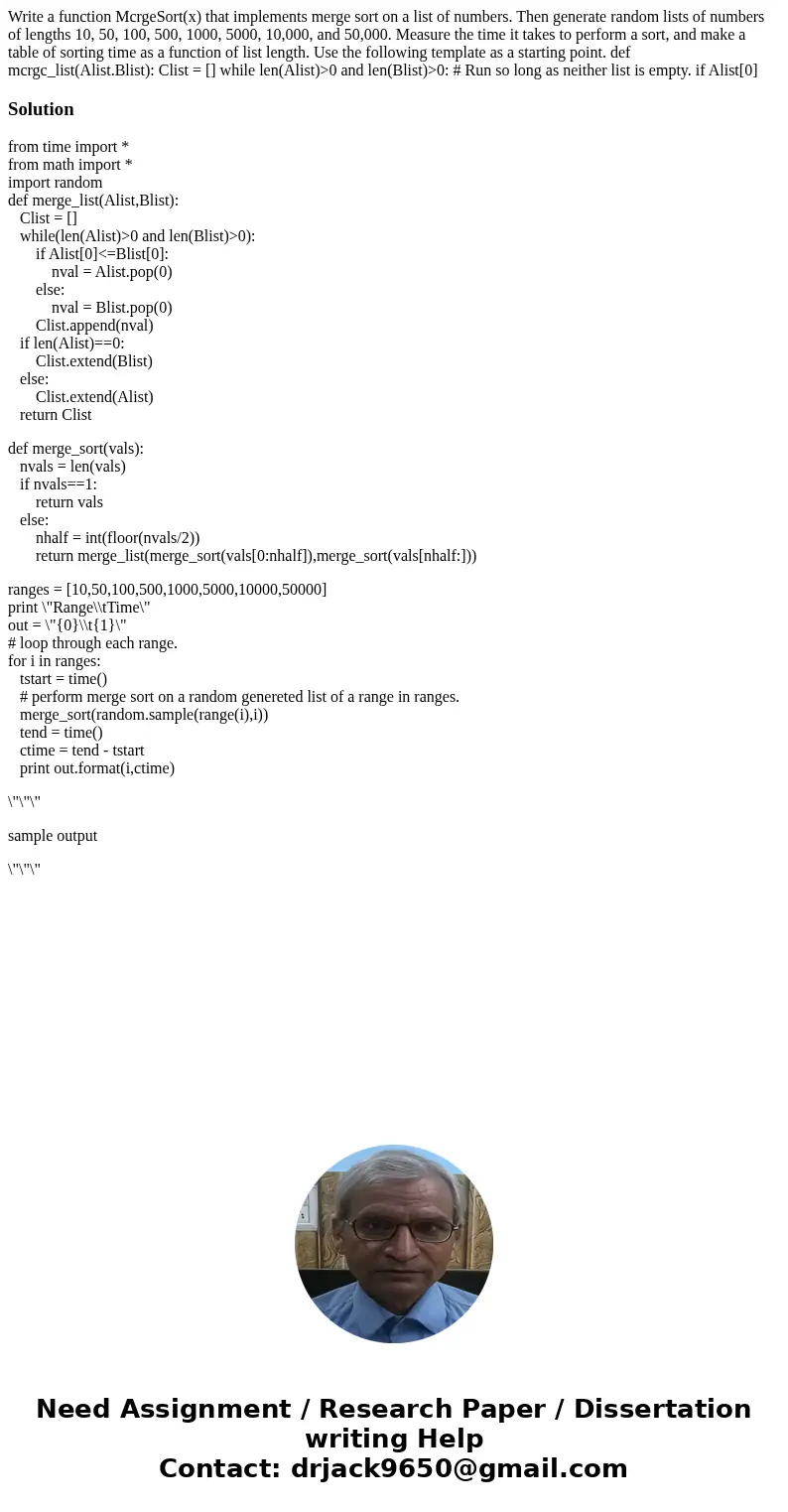Write a function McrgeSortx that implements merge sort on a
Solution
from time import *
from math import *
import random
def merge_list(Alist,Blist):
Clist = []
while(len(Alist)>0 and len(Blist)>0):
if Alist[0]<=Blist[0]:
nval = Alist.pop(0)
else:
nval = Blist.pop(0)
Clist.append(nval)
if len(Alist)==0:
Clist.extend(Blist)
else:
Clist.extend(Alist)
return Clist
def merge_sort(vals):
nvals = len(vals)
if nvals==1:
return vals
else:
nhalf = int(floor(nvals/2))
return merge_list(merge_sort(vals[0:nhalf]),merge_sort(vals[nhalf:]))
ranges = [10,50,100,500,1000,5000,10000,50000]
print \"Range\\tTime\"
out = \"{0}\\t{1}\"
# loop through each range.
for i in ranges:
tstart = time()
# perform merge sort on a random genereted list of a range in ranges.
merge_sort(random.sample(range(i),i))
tend = time()
ctime = tend - tstart
print out.format(i,ctime)
\"\"\"
sample output
\"\"\"

 Homework Sourse
Homework Sourse